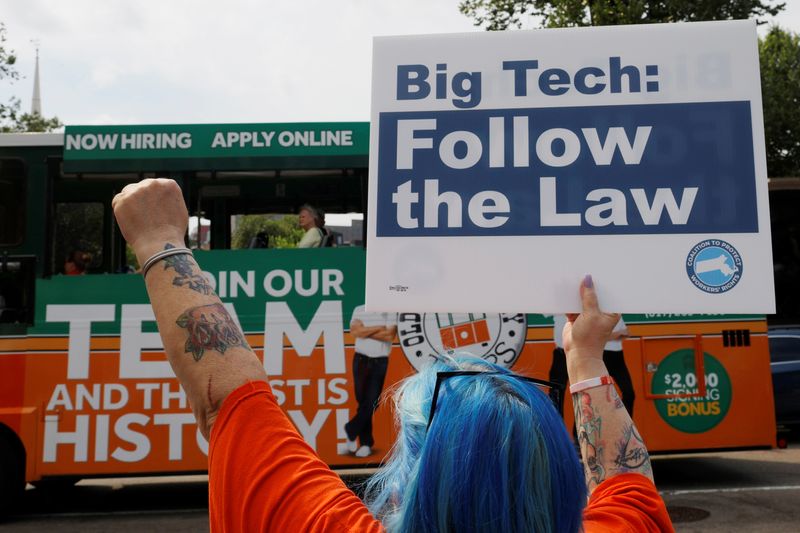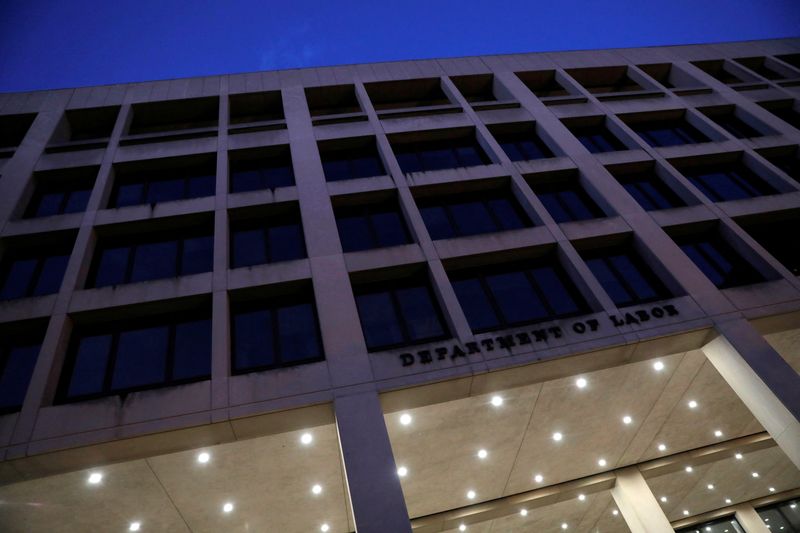By Daniel Wiessner
(Reuters) -The U.S. Department of Labor on Tuesday issued a final rule that will force companies to treat some workers as employees rather than less expensive independent contractors, in a move that has riled business groups and will likely prompt legal challenges.
The rule is widely expected to increase labor costs for businesses in industries that rely on contract labor or freelancers, such as trucking, manufacturing, healthcare and app-based "gig" services.
Most federal and state labor laws, such as those requiring a minimum wage and overtime pay, apply only to a company's employees. Studies suggest that employees can cost companies up to 30% more than independent contractors.
The rule will require that workers be considered employees rather than contractors when they are "economically dependent" on a company.
It replaces a Trump administration regulation favored by business groups that said workers who own their own businesses or are free to work for competing companies can be treated as contractors.
The new rule adopts a standard that courts have used for years to determine the proper classification of workers. That standard looks at several factors including the degree of control companies exercise over workers and whether the work performed is an integral part of a company's business.
The Labor Department said it does not expect the rule to lead many companies, let alone entire industries, to reclassify workers. But it will enable more effective enforcement against businesses that purposely misclassify workers to save money, the agency said in the rule.
It does not go as far as wage laws in California and other states that place even greater limitations on independent contracting.
Business groups and Republican lawmakers strongly criticized the rule on Tuesday, saying it will cause millions of workers to lose opportunities to earn money and would create confusion that will spur costly litigation.
U.S. Senator Bill Cassidy, a Republican from Louisiana, said in a statement that he would introduce a resolution to repeal the rule. Cassidy said the rule would bolster labor unions' efforts to increase their membership, as independent contractors and freelancers cannot join unions.
The rule is set to take effect on March 11.
Acting U.S. Labor Secretary Julie Su during a call with reporters on Monday said the misclassification of workers as contractors rather than employees particularly harms low-income workers who would benefit the most from legal protections such as a minimum wage and unemployment insurance.
“A century of labor protections for working people is premised on the employer-employee relationship,” Su said.
Worker advocates and some Democratic officials praised the rule, saying it was necessary to ensure basic protections for workers.
"Worker misclassification also undermines law-abiding businesses that are forced to compete with dishonest employers who use misclassification to unfairly cut down on labor costs," U.S. Rep. Bobby Scott, a Democrat from Virginia, said in a statement.
But according to some business groups, the rule tips the scales too far in favor of finding that workers are employees rather than contractors, which will deprive millions of workers of flexibility and opportunity.
“Making matters worse, the rule is completely unnecessary, as the Department continues to report success in cracking down on bad actors that are misclassifying workers," Marc Freedman, vice president at the U.S. Chamber of Commerce, said in a statement. He added that the Chamber, the largest U.S. business group, is considering challenging the rule in court.
POTENTIAL IMPACT ON 'GIG' WORKERS
The Labor Department has said the rule was designed to crack down on industries, including construction and healthcare, where misclassification of workers is common. But its potential impact on app-based delivery and ride-hailing services, whose business models depend on contract "gig" labor, has garnered the most attention.
Chamber of Progress, a trade group that represents tech companies, said the rule could impact gig workers depending on how the Labor Department enforces it. Reclassifying independent contractors as companies' employees would negatively impact an estimated 3.4 million gig workers, resulting in $31 billion in lost income, the group said.

Companies including Uber Technologies (NYSE:UBER) and Lyft (NASDAQ:LYFT) have expressed concerns about the rule but also have said they do not expect it to lead to their drivers being classified as employees.
Uber, Lyft and DoorDash (NASDAQ:DASH) in separate statements said they did not expect the rule to change the way they do business.
